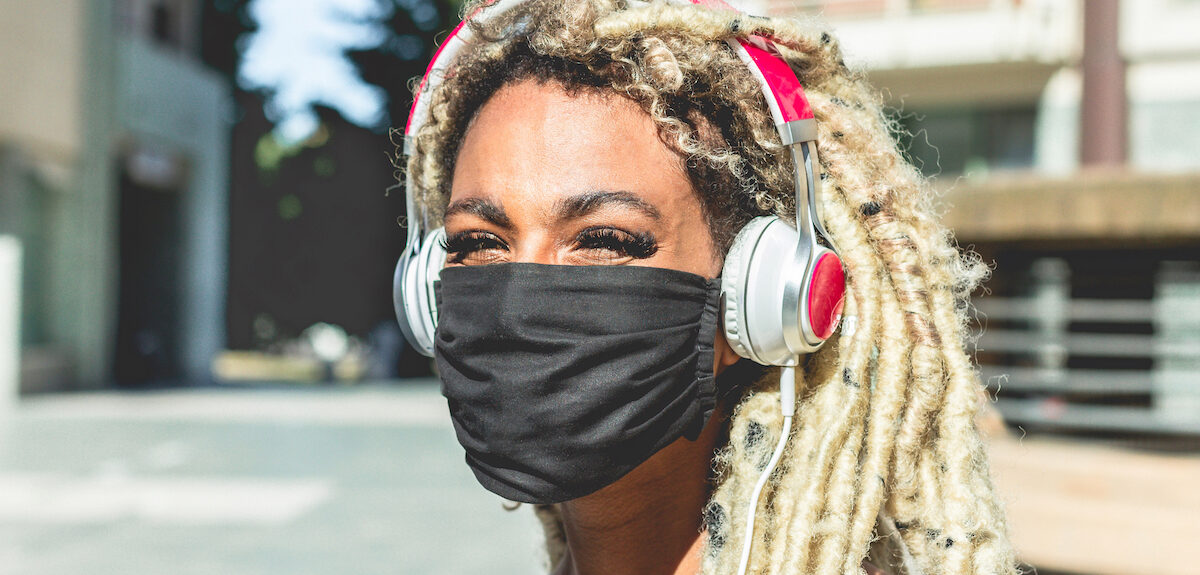Featured Articles Health
Masking still, despite pandemic’s official end
By Isabella Konecky
As she waited at an East 14th Street bus stop, Lynn Chealander had her KN-95 plastered around her mouth and nose. Diagnosed with COVID-19 in 2020, Chealander hasn’t fully recovered. She considers herself “mildly disabled” from long-COVID.
A manager for a tech company, the 35-year-old said she’s lucky to work from home. Even so, she cannot consistently focus or stare too long at her computer screens. Because of these hindrances and her nonstop symptoms, including exhaustion, depression and anxiety, she’s soon to begin a medical absence. She’s afraid if she again contracted full-on COVID, she would be very, very ill.
“I mask for two reasons. One, ‘cause I don’t want to take chances. Reason two is I don’t want other people to end up like me,” Chealander said.
She is among a relative handful of people who still are masking, even after the World Health Organization declared the pandemic officially over. Masking may no longer be the law, but those people say it is their routine.
“I get on the train at 4:30 in the morning to come work here,” New York University employee Nikki Davis, who works at the 0.
0.
NYU-owned Dunkin’ in University Hall. “It’s not like anyone covers their mouth [on the subway], coughing in my face. And then I come here …
“You’ve been in the dining hall. Do you see any seating restrictions? … Do you know how often [students] get sick?”
Masking offers her a bit of assurance.
Chealander said the rush to return to a pre-pandemic “normal” shows that government officials and others are prioritizing politics and economics over all else. She cited a decision by In-n-Out Burger chain executives to, beginning next month, ban employees in five Western states from wearing masks. Aside from those working as painters (or in any other capacity that involves the inhalation of toxic fumes), only workers with medical conditions may don masks. Company officials contend that this move will create a better customer experience.
Chealander cannot imagine that anyone wouldn’t have a say in whether to wear a mask at work. “At the end of the day, [masking] is an equity issue,” she said.
Mekhi May, 16, agrees with that perspective. He also has a better-safe-than-sorry mindset regarding masking. “People are still getting affected by [COVID],” said May, who will be a senior in the fall at St. John’s Collegiate Prep in Queens. “ … That’s the same mentality that made the numbers go back up.”
Living with long-COVID in an unmasked world has its deleterious effects, Chealander said: “I don’t have a social life, at least not in the winter when it’s cold outside, or when … I feel bad asking people to take a COVID test.”
Few people, she said, extend to her the same consideration.
Should more people mask right now? “Yes,” May said, adding a caveat. “But it’s really their personal preference.”


